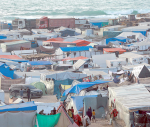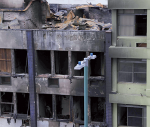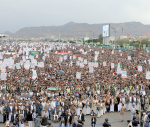You are here
Not a definite breakthrough
Dec 23,2015 - Last updated at Dec 23,2015
The Security Council resolution on Syria issued last Friday is no doubt an important step towards a possible political settlement for the five-year old Syria war.
However, it may not be good enough to mark the beginning of a successful and smooth peace process.
Apart from the fact that, for a change, the most effective UN body is now unanimous in laying down the grounds for the long-envisaged settlement of one of the most complex regional conflicts, the substance of the resolution reflects how narrow the options of the council in fact are.
The essence of the Security Council peace plan, a blend of work done initially by the International Syria Support Group (ISSG), previously published Russian ideas, as well as outcomes of the Geneva and Vienna meetings on the crisis over the past few years, is to end the civil war and to create, via UN-supervised elections, a new government representative of all factions in the war-torn country.
In fact, the resolution internationalises efforts to seek a political solution for Syria by giving the UN a leading role in dealing with the issue, endorsing at the same time the 17-member ISSG as the main body dealing with the Syria peace process.
The Security Council resolution approves the peace plan agreed to by the ISSG in Vienna last month, including a ceasefire between the regime and the opposition, in six months, and talks leading to the drafting of a new constitution.
By not addressing the very controversial issue of the fate of President Bashar Assad or his role in the foreseen peace process, the resolution clearly indicates the council members’ pragmatic agreement on sorting out priorities.
Disagreement on Assad’s future, with Syria’s allies demanding that this matter be left for the Syrian people to decide upon and not be the concern of anyone else, and the opposition insisting that Assad has no future in post-war Syria, has so far been crippling all efforts to end the fighting.
Sidestepping this major obstacle could be seen as a significant development in placing primary emphasis on fighting the terrorists first.
Obviously, there is consensus on battling Daesh, as the most dangerous, but identifying the other terrorists might prove to be a serious hindrance.
Is it going to be easy for the many parties, including the Syrian regime, with their conflicting interests and their years-long investment in the Syrian tragedy, to draw clear lines between legitimate Syrian opposition, entitled to participate in the upcoming peace negotiations set to determine the future of Syria, and the outlawed terrorists?
Unquestionably, the Security Council resolution is a significant first step. It offers a peace plan and a roadmap for a political settlement. It finally reflects superpower agreement, indeed compromise, on how to handle a fast-escalating bloody conflict, the devastating threats of which are creeping worldwide while the world had turned a blind eye, if not feeding the carnage.
The problem, however, will erupt during the course of implementation.
Peace talks can only start once fighting stops, once all factions agree to observe the UN call for ceasefire.
The terrorists, whether identified or not, have no interest in ceasing their fire simply because: 1) they operate outside the law anyway and therefore are unbound by UN resolutions; 2) they will be under attack, as the whole point of the allied effort is to fight terrorists to the very end.
It is quite difficult to understand how the allied war, though legitimate, could continue against the terrorists and a ceasefire can be expected at the same time.
War, on the other hand, will inescapably involve more civilian casualties, more destruction, more refugees and more political chaos.
If the war were to continue in any form or shape, each side will be tempted to improve its position on the ground to buttress its standing at the negotiating table.
But all the risks involved and the expected obstacles are known to the main architects of the agreement, particularly US Secretary of State John Kerry and Russian Foreign Minister Sergey Lavrov. And yet, both diplomats, with strong international support, had to proceed with the peace plan, regardless.
The options are indeed narrow, but at the same time the raging violence in Syria has to be stopped.
It is an affront to the civilised world, to the UN system, to all nations.
The war has to stop, not only because it is threatening all of us, but also because it is an essential moral and human responsibility to intervene and to prevent further fighting and suffering.













